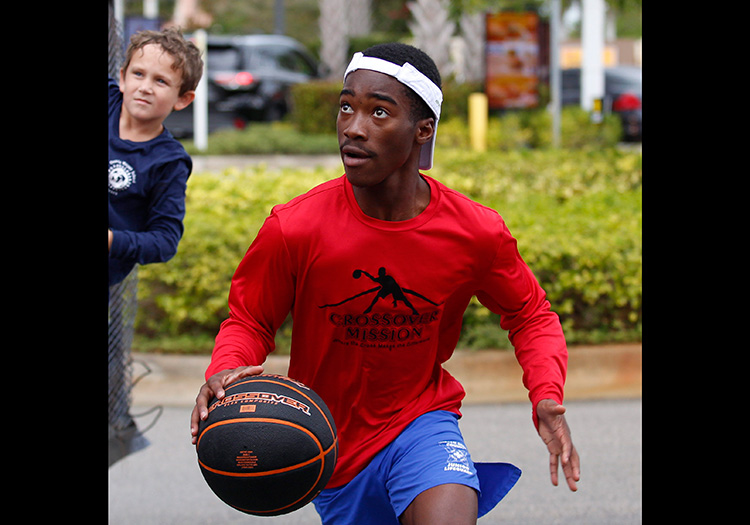
More than 20 years have passed since the first and only time I sat on a jury.
After listening to witnesses testify for 2 ½ days in a Colorado courtroom, the judge welcomed us back from lunch by announcing the parties had agreed to settle their civil dispute.
It was an experience I’ll never forget.
But it’s what happened after we returned to the jury room that I remembered most last week as I read through the wrongful-death lawsuit filed against St. Edward’s School by the father of a senior who drowned during a celebratory group jump last April off a campus dock into the murky Indian River Lagoon.
As the Colorado judge explained before he excused the jury and thanked us for our service, courts in that state invite jurors in civil cases to entertain post-trial questions from attorneys, who want to know how their presentations were received.
All of us stayed, but only the plaintiff’s attorneys came in. They asked what we thought of their case. No foreman had yet been selected, but it quickly became obvious we all were in agreement, so I spoke for the group.
“You probably don’t want to hear this, but we wouldn’t have settled,” I told the attorneys, who suddenly had a pale, sick look on their faces as my fellow jurors nodded. “You were going to hit the lottery.”
The same could happen here, which is why St. Edward’s cannot let this drowning case go to trial.
Given what we know thus far about the tragic death of 18-year-old Bidensky “BT” Termidor, especially from the Sheriff’s Office’s 4 ½-month investigation, it’s difficult to imagine any jury showing sympathy for St. Edward’s, where the leap into the lagoon has been a pre-graduation rite of passage since 2007.
St. Edward’s officials not only sanctioned the event as if it were a football game – parents were invited, faculty and staff members attended, and the school’s communications director video-recorded the activity from a boat 40 feet away – but they did so without any meaningful safeguards.
That’ll be tough to defend in court.
The lawsuit filed Dec. 7 by Termidor’s father, Faniel, accuses St. Edward’s of “negligent supervision” for planning and conducting such an event during school hours and on school property without providing lifeguards, lifejackets or water-safety equipment near the dock.
Nor were there paramedics on site to treat any jump-related emergencies, the suit states.
The complaint also accuses school officials of “failing to protect Termidor from harm, knowing full well he was a below average swimmer.”
The Sheriff’s Office’s report, which was released in September after detectives interviewed dozens of witnesses and watched videos of the incident, appears to support those allegations.
St. Edward’s only defense was provided by 19th Circuit Chief Medical Examiner Patricia Aronica, whose autopsy on Termidor included a toxicology report that revealed he had alcohol and traces of tetrahydrocannabinol (THC) in his blood.
Termidor, a standout basketball player and successful student who was headed to the University of North Florida on an academic scholarship, had a blood-alcohol content of .083, just above the state’s .08 limit to drive legally.
But those numbers offer little mitigation: Aronica said she was unable to determine if the presence of those drugs, in the amounts found, were factors that contributed to his death, which she ruled an “accident.”
There’s another problem with the he-was-drunk defense – one that might make it awkward for St. Edward’s Board of Trustees to pursue.
The Sheriff’s report included statements from classmates who said a group of about 15 seniors, including Termidor, left campus earlier that day and had been drinking alcoholic beverages on the beach.
In addition, though, the report states two students told a detective that, prior to returning to campus for the seniors’ last-day-of-class festivities, some classmates participated in “get-togethers” at their parents’ homes, where alcoholic beverages were available.
You can be sure Boynton Beach-based attorney Kenneth Salk, who is representing Termidor’s father, will want to take depositions from those students – as well as the parents whose homes were visited – if the case gets that far.
Which it shouldn’t.
And probably won’t.
What happened to Termidor was a tragic accident, which everyone should agree was entirely preventable. It’s stunning, really, that the St. Edward’s board hasn’t already made a public statement banning the ceremonial dock jump, which would be reckless to continue.
But there’s no need for this lawsuit to get ugly.
Salk did not respond to messages left at his office last week, but in the complaint, he writes that his client is seeking money damages to cover funeral and burial expenses, loss of Termidor’s future earnings and lifelong mental pain and anguish suffered by survivors.
Vero Beach attorney Will Murphy, who is representing St. Edward’s, declined to comment.
We can only hope that’s a sign the two parties are already negotiating a fair settlement that compensates Termidor’s family for such a loss.
Unless some jarring new evidence surfaces to significantly mitigate the school’s responsibility, St. Edward’s might be wise to not risk going to trial and playing the lottery.
The trustees may want to admit the school was mistaken in embracing such a potentially perilous tradition and write the check.
Before a jury tells them to write a bigger one.



